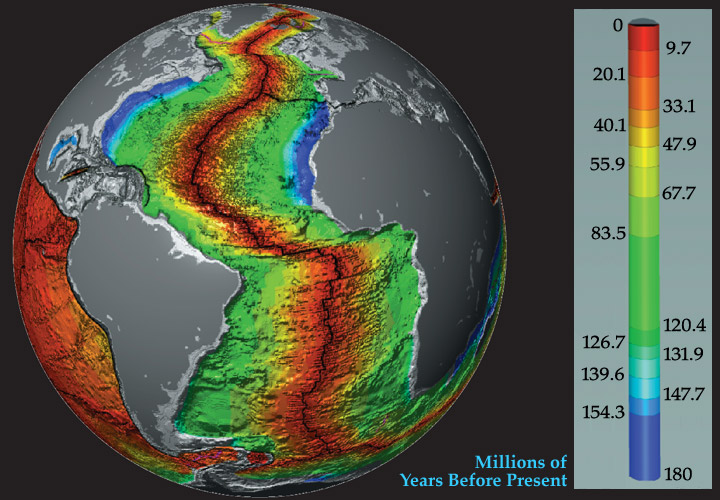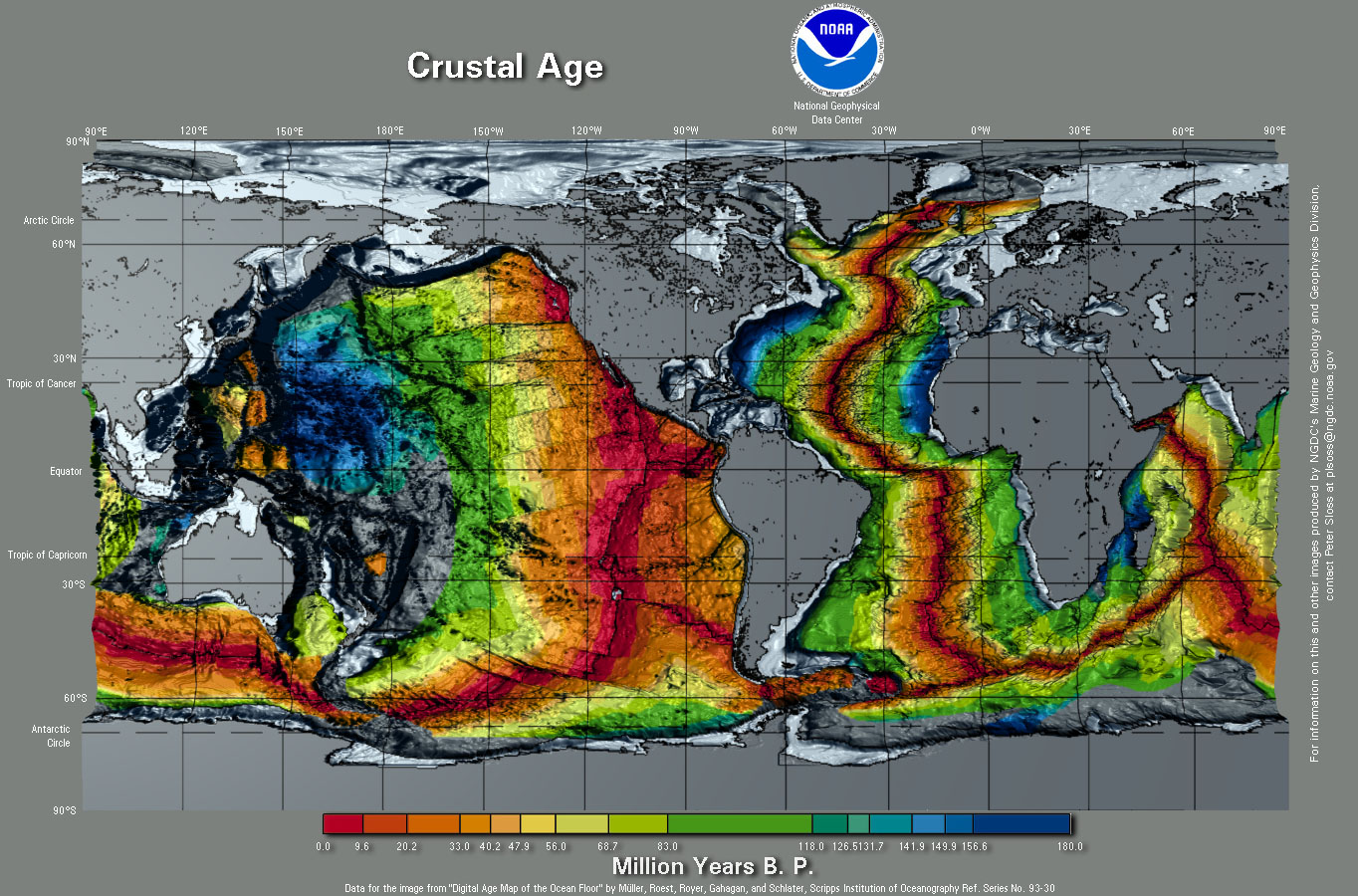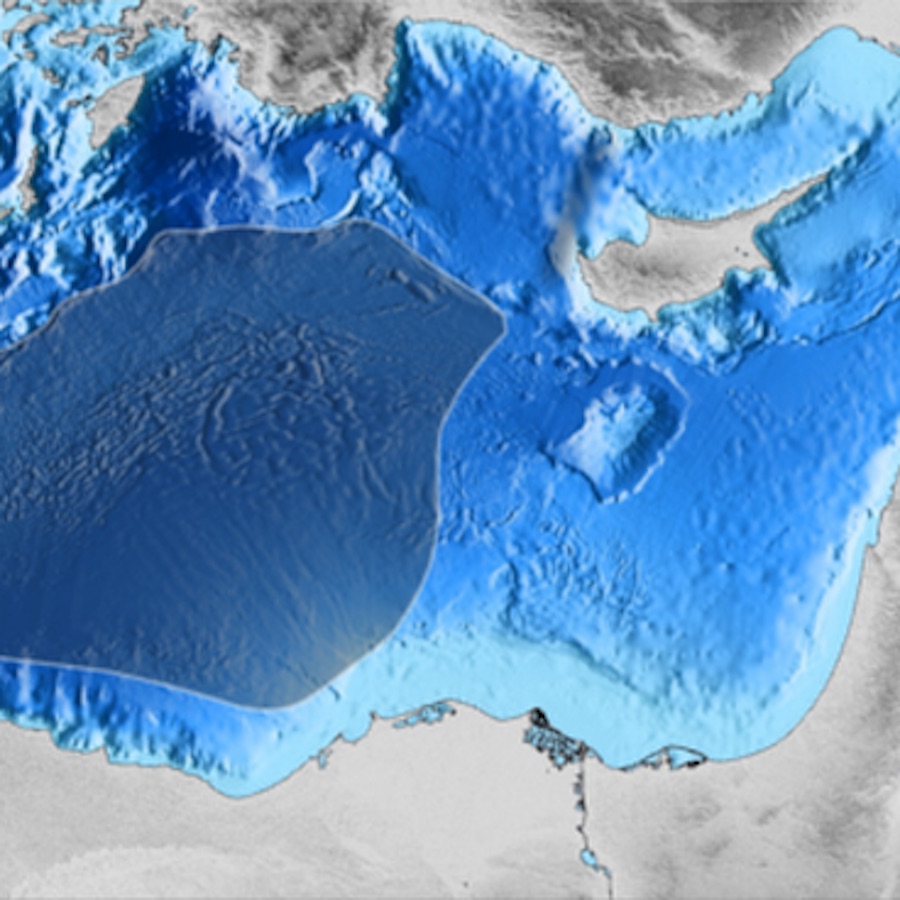Oceanic crust is the uppermost layer of the oceanic portion of a tectonic plate it is composed of the upper oceanic crust with pillow lavas and a dike complex and the lower oceanic crust composed of troctolite gabbro and ultramafic cumulates.
Age of oldest rocks on ocean floor.
This image shows the age of rocks on the atlantic ocean seafloor.
Why are there no oceanic rocks older than 200 million years.
The data is from four companion digital models of the age age uncertainty spreading rates and spreading asymmetries of the world s ocean basins.
The crust overlies the solidified and uppermost layer of the mantle the crust and the solid mantle layer together constitute oceanic lithosphere.
The oldest ocean floor is located near the continents next to a subduction zone.
As the magma and lava cool at seafloor spreading centers whatever magnetic field is present get ingrained into the rock.
Consider how the age of rocks is related to the shape of the seafloor you saw in step 3.
Every so often it has occurred over 170 times over the past 100 million years the poles will suddenly switch.
The ocean plates spread and grow in opposite directions so rocks that are equidistance from the center have the same magnetic polarity and age.
Contours of 20 million years are available as a layer that is currently set to invisible.
There are rocks on every continent that are 3 to 4 billion years old.
Examine the color code to understand how the age of rocks changes from the center to the edges of the ocean floor.









